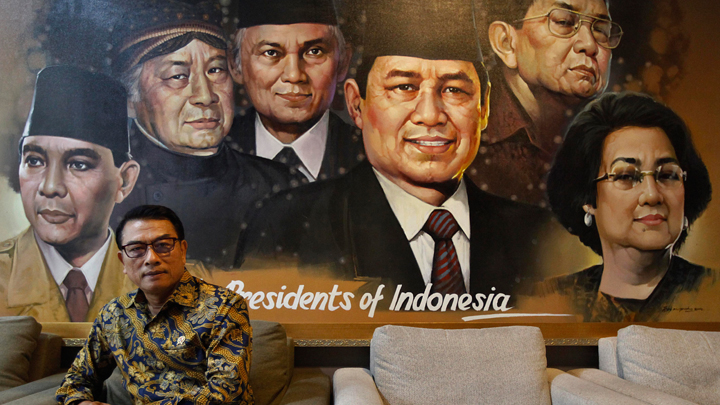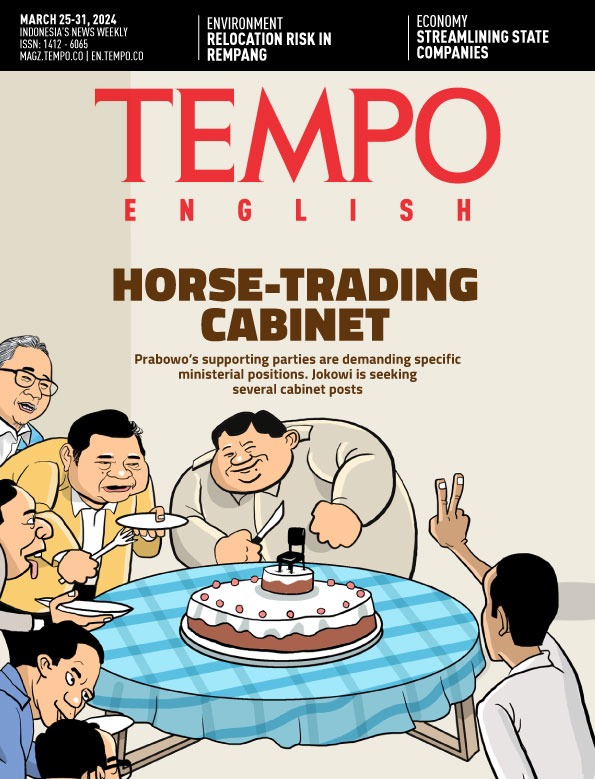MOELDOKO, Chief of Presidential Staff office: My Name Is Everywhere
Monday, January 13, 2020
arsip tempo : 171329393566.

“Learning from the history, we must always be vigilant. Let us not be distracted by internal problems that we neglect the matters that affect our sovereignty, especially because the North Natuna Sea is so expansive that it is often deserted,” Moeldoko said.
The presence of dozens of Chinese fishing boats escorted by Chinese coastguard and frigate ships in Indonesia’s Exclusive Economic Zone (EEZ) spurred tensions between
...
Subscribe to continue reading.
We craft news with stories.
 For the benefits of subscribing to Digital Tempo, See More
For the benefits of subscribing to Digital Tempo, See More









